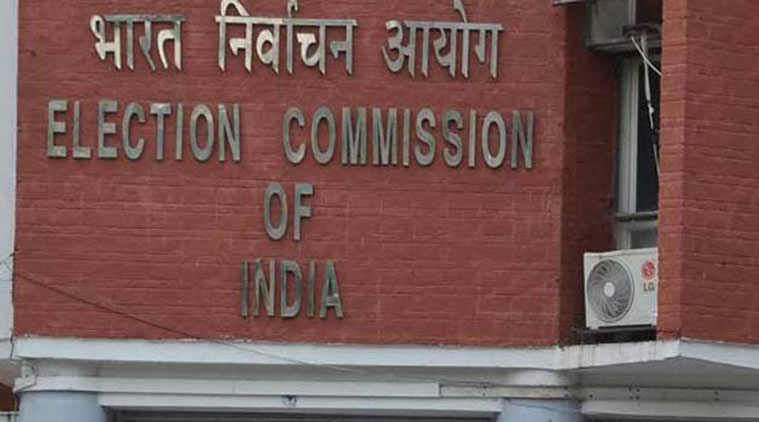Ritika Chopra, an award-winning journalist with over 17 years of experience, serves as the Chief of the National Bureau (Govt) and National Education Editor at The Indian Express in New Delhi. In her current role, she oversees the newspaper's coverage of government policies and education. Ritika closely tracks the Union Government, focusing on the politically sensitive Election Commission of India and the Education Ministry, and has authored investigative stories that have prompted government responses. Ritika joined The Indian Express in 2015. Previously, she was part of the political bureau at The Economic Times, India’s largest financial daily. Her journalism career began in Kolkata, her birthplace, with the Hindustan Times in 2006 as an intern, before moving to Delhi in 2007. Since then, she has been reporting from the capital on politics, education, social sectors, and the Election Commission of India. ... Read More
Congress complaint on ‘misuse’ by PMO: EC seeks Niti Aayog reply
Last week, the Congress had approached the EC with an allegation that the PMO had used the NITI Aayog to collect information in advance about places where Prime Minister Narendra Modi was set to campaign.
 The poll panel is learnt to have sought NITI Aayog CEO Amitabh Kant’s comments “immediately”.
The poll panel is learnt to have sought NITI Aayog CEO Amitabh Kant’s comments “immediately”.
The Election Commission of India (EC) has sought NITI Aayog’s comments on the Congress’s allegation that the government policy think-tank was misused by the Prime Minister’s Office (PMO) for election purposes.
A letter, The Indian Express has learnt, was sent to NITI Aayog CEO Amitabh Kant on Saturday. The missive does not mention a deadline by which he has to respond.
Lok Sabha Elections 2019 | Polling schedule, results date, constituency-wise results, how to check live counting
The poll panel is learnt to have sought Kant’s comments “immediately”.
Last week, the Congress had approached the EC with an allegation that the PMO had used the NITI Aayog to collect information in advance about places where Prime Minister Narendra Modi was set to campaign.
Quoting from a news report on the website scroll.in, the opposition party’s complaint alleged the Aayog had written to different collectors in Maharashtra in March seeking basic statistics and demographic profile of Gondia, Latur and Wardha districts ahead of Modi’s rallies there.
Exemption put in for PM in 2014
While it’s a fact that the model code of conduct prohibits use of government machinery for election purpose, an EC instruction of October 7, 2014, exempts the Prime Minister from the provision that disallows ministers from combining official visits with electioneering visit. Congress’s complaint will have to be examined in light of the MCC provisions as well as the exemption of 2014.
Similar instructions were also issued to government officers in all Union Territories seeking information on the local culture, history, heroes, among others, of the areas which the PM was about to visit, the opposition party’s complaint stated.
This, the Congress stated, was in violation of the EC’s instructions that prohibit misuse of government resources in election campaigning. The model code of conduct also states that the “ministers shall not combine their official visit with electioneering work and shall not also make use of official machinery or personnel during the electioneering work.”
This is not the first time in this Lok Sabha election season that the NITI Aayog has come under the EC scanner for model code violation. In March, the Commission had written to NITI Aayog vice-chairman Rajiv Kumar seeking an explanation for his criticism of Congress president Rahul Gandhi’s announcement on minimum basic income guarantee as a poll promise.
Kumar had dismissed the promise of a minimum income of Rs 6,000 to the poorest 20 per cent households by saying that the party can “say and do anything to win elections”. Although Kumar had told the EC that he had criticised the Congress announcement in his capacity as an economist, the Commission found his remarks guilty of violating the model code and let him off with a warning.
Meanwhile, in an interaction with the media, Deputy Election Commissioner Sandeep Saxena on Saturday said that out of 49 complaints of model code violations received till date, 43 have been disposed of. He said of the six complaints now pending, three are from Uttar Pradesh, two from Chhattisgarh, and one from Bihar.
Saxena also said that even though the decision of the Chief Election Commissioner and two Election Commissioners is achieved unanimously in most cases, there can be certain instances of a difference of opinion and the majority view is accepted.
“The provision is that to the possible extent, unanimous decision should be taken, and this is what happens in most cases. (But) in some of the cases there may be a differing view, and whatever is the majority view is taken as the final decision,” he said. —With ENS inputs
Photos



- 01
- 02
- 03
- 04
- 05





























